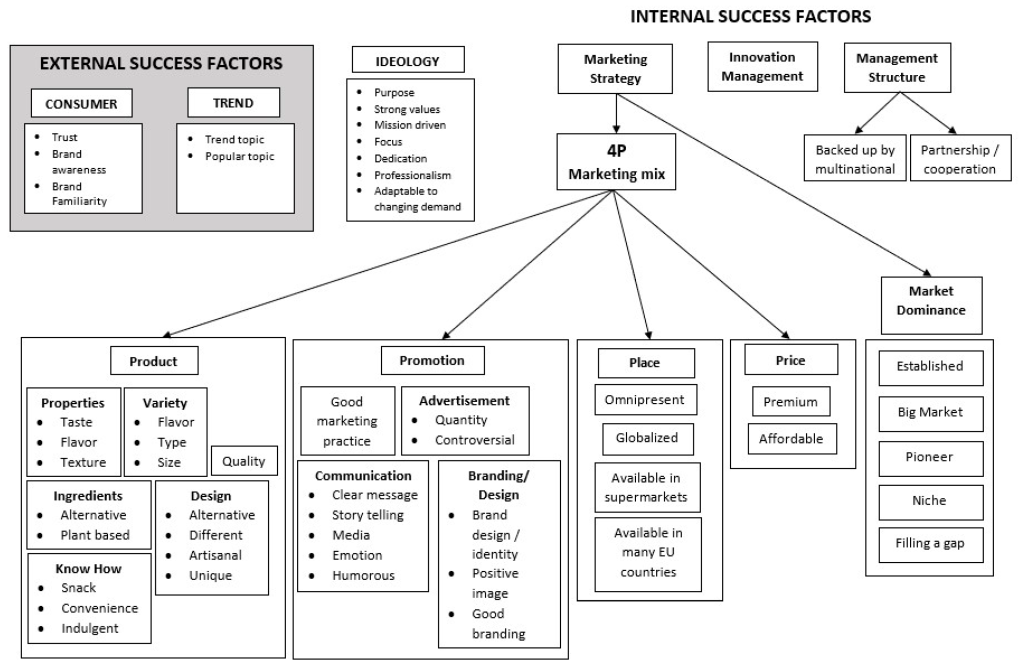As part of the Smart Protein project, researchers from Ghent, Umeå, and Copenhagen universities, recently published a paper that looked at the key factors involved in successful plant-based food brands in Europe. Read on for a summary of the paper.
Plant-based food is on the rise as an alternative to animal-based food. Europe is leading in terms of sector size, in comparison to the global market. However, the high failure rate for new food products is limiting the success of new plant-based food brands. This paper aims to unravel the key factors that determine whether a brand will be successful or not.
About the research
Two studies were included, both of which employed online surveys that targeted food experts. Study 1 focused on the collection of key success factors related to plant-based food brands, utilising the card-sorting approach to do so. Study 2 employed cluster analysis to further investigate key success factors among different plant-based food brands.
Key findings
The findings identified six clusters of key success factors, each cluster representing an external or internal aspect that supports the success of a plant-based food brand.
External factors :
- Consumers: participants mentioned ‘trust’, ‘brand awareness’, and ‘brand familiarity’ as key success factors related to consumers’ connection to a brand. As such, these three factors were classified into the ‘consumer’ cluster.
- Trend: participants also referred to ‘trend topics’ and ‘popular topics’, both of which suggest that there is an external movement or a (societal) trend towards plant-based food as a success factor for the brands. These two key success factors were grouped together under the ‘trend’ cluster.
Internal factors (defined as factors within the business that can be controlled by the company or brand):
- Ideology: includes key success factors related to the philosophical value or practice of the plant-based food brands, such as ‘having a purpose’ and ‘focus’. Some other factors were also mentioned for this cluster, such as ‘mission driven’, ‘having dedication’, ‘professionalism action’, and ‘the ability to adapt to the changing demand’.
- Marketing strategy: this cluster houses many success factors, which are classified into two groups: ‘4P’ and ‘market dominance’. ‘4P’, refers to the common marketing mix of tools which include product, promotion, price, and place.
- Innovation management: ‘innovative’ and ‘innovation’ were among the most used keywords when explaining the success factors of the brands, and were grouped under the ‘innovation management’ cluster.
- Management structure: brands were considered successful when they had a ‘partnership or cooperation’ with another brand(s) or organisation(s), and also when they were ‘backed up or supported by a multinational organisation’.
Furthermore, cluster analysis identified four brand clusters:
- Mature
- Targeted
- Newcomer
- Established but diversifying
Each brand cluster incorporated different key success factors into their strategies; however, both external and internal factors were applied, suggesting that there is no ‘one-size-fits-all’ key success factor to succeed in the market.
Map of the clusters and groups of key success factors, generated based on card-sorting approach.
Access the full paper here to gain insights into how to market new plant-based food products successfully.

